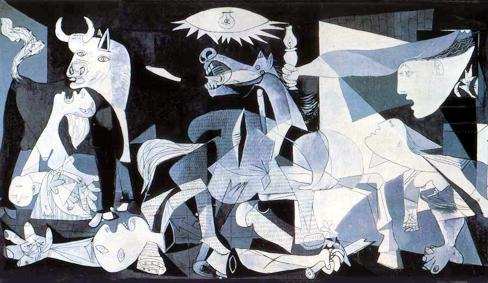The new issue (issue 26) of my What’s Next report is live. You can find it (free) at www.nowandnext.com.
If you can’t be bothered here two items.
1. Computers getting into our faces
Having upset a few privacy campaigners with Street View, Google looks set to upset some more with its plans for face recognition technology. Police, border control authorities and security services have been using facial recognition technology for some time to spot suspects and to prevent people from breaking the law. Now the technology is becoming so cheap and powerful, it is about to enter mainstream use.
Two Swedish companies have created an application that allows mobile phone users to take a photograph of someone and upload the image (via the phone) to the internet where a software program hunts for similar images. Given there are 4.6 billion mobile phone accounts around the world and 800 million camera-equipped mobile phones were sold last year, this could quickly become a must-have accessory.
On the plus side, this technology allows you to hunt the internet for illegal use of your face or features or download publicly available information about someone you are just about to meet but don’t know. But you could also take a photograph of someone on a crowded holiday beach, identify them, find out where they live, and pass the information to criminal gangs who rob them while they are away, so it could seriously impact people’s privacy and physical security.
Similarly, the technology could help you to identify potential friends (e.g. people with similar interests perhaps) but it could also help you to identify people you might hate and wish to harm. As always, the devil is in the user, not the technology.
2. Financial aftershocks and instability
The financial earthquake of 2007/9 appears to be over and most of the damage has been cleared from view. But no-one really knows what’s going on. Two key trends have emerged from the recent crisis and these are uncertainty and volatility. The perception of markets is that the world has entered a dangerous era of risk. This is partly because national economies are now so tightly connected and partly because there is extra sensitivity to potential triggers. Everyone expects an aftershock, but nobody can say for sure where, or when, it will occur. Hence everyone has the jitters.
It’s possible, of course, that a handful of Eastern and Asian economies will pull the rest of the world out of trouble. It’s also possible that the US will recover sooner than expected or that developed nations will learn to live with less and adjust to a new age of austerity. Alternatively, soaring debt, tax increases and spending cuts may create a new age of rage.
We could be in for a period of deflation, high unemployment and competitive currency devaluations. This could lead to the Eurozone falling apart (trust me, it will eventually) and higher levels of protection. On the other hand we may be in for a period of inflation, the likes of which we’ve not seen for decades. But this isn’t necessarily a bad thing. Higher inflation would mean falling real wages, which would create more jobs. It would also, critically, reduce household ands government debt. So, to sum up, nobody has the slightest idea what’s going on.
Read some more and nowandnext.com

